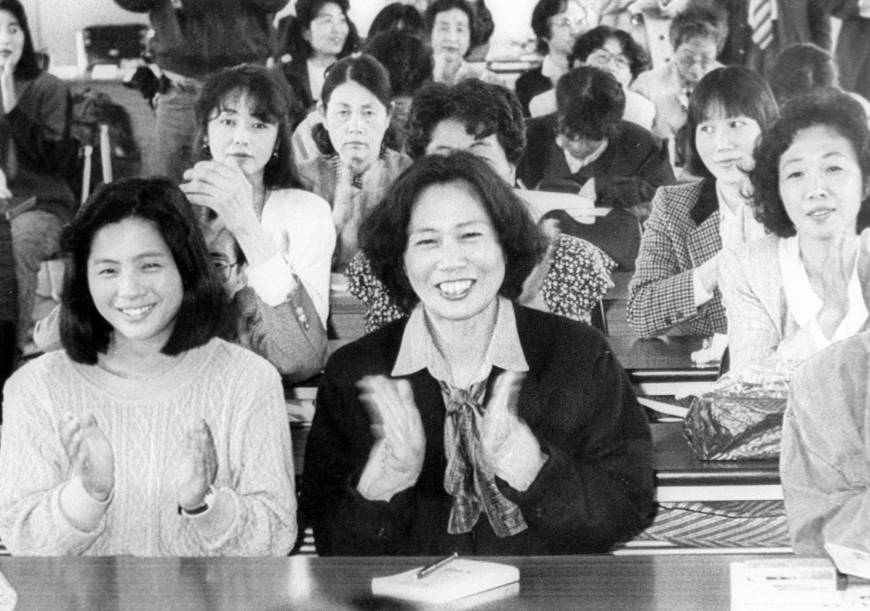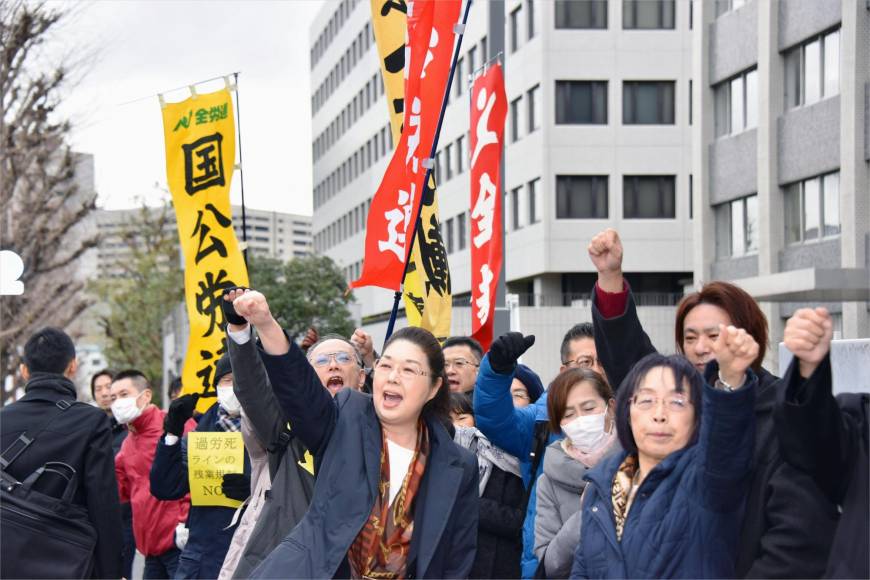 Lawmaker Mio Sugita of the ruling Liberal Democratic Party found herself embroiled in controversy when the August edition of Shincho 45 was released on July 18. “Support for LGBTs has gone too far” screamed the headline of her article in the magazine.
Lawmaker Mio Sugita of the ruling Liberal Democratic Party found herself embroiled in controversy when the August edition of Shincho 45 was released on July 18. “Support for LGBTs has gone too far” screamed the headline of her article in the magazine.
This hard-right politician is already infamous online for her claim that the wartime network of sexual slavery serving the Imperial Japanese Army, euphemistically known as the “comfort women” system, is a fabrication of the Japanese left, and for attacking Koreans with such gems as “They spread their lies throughout the world.”
To mothers who lament the dearth of preschools available in Japan and demand that the central government take quick action to rectify the situation, she says: “That is your problem. You do something about it.”
She recognizes herself as conservative, right-wing and a patriot, and expresses animosity — even hatred — for the left, even penning a book titled “Why I Fight the Left.” The book heaps abuse on labor unions and praises nuclear power, casinos and the high-level professional overtime pay exemptions that will go into effect next April. Yet she loves Japan’s “beautiful culture and history.”
In her recent essay, she wrote: “Will people agree to have their taxes used on LGBT couples? They cannot have children, so they are unproductive.”
Japan does not recognize same-sex marriage. Local governments, on the other hand, have spearheaded efforts to use local ordinances to recognize same-sex partnerships. These include Shibuya and Setagaya wards in Tokyo and the cities of Iga in Mie Prefecture and Takarazuka in Hyogo.
Tolerance within society for the LGBT community is growing rapidly. IBM Japan, Kirin, Rakuten, Japan Tobacco and other corporations are moving ahead in instituting policies to provide the same level of special paid leave for marriage, childbirth, home care and other life events to same-sex couples as to those between a woman and man.
Unwelcome on golf course
Let me introduce to you a recent verdict to give an idea of what Japan’s courts are saying about LGBT people.
A golf course in the Shizuoka city of Kosai (whose name has not been released by the courts) refused membership to a corporate executive who had changed her registered gender from male to female. In Japan, this requires you to assert that you suffer from gender dysphoria. She sued the golf course for damages due to wrongful conduct, a violation of Japan’s Civil Code.
Shizuoka District Court ruled on Sept. 8, 2014, and the Tokyo High Court handed down a verdict on July 1, 2015. Both agreed with a portion of the claims and ordered the defendant to pay the hefty sum (by Japanese jurisprudent standards) of ¥1 million.
In its verdict, the appellate court clearly condemns discrimination against LGBT, although in a way that is likely jarring (or even maddening) to some: “Society understands quite well that being LGBT is not a matter simply of a hobby or predilection, but rather an illness that they suffer regardless of their will. The intolerability of irrational treatment based on the reason of gender dysphoria or on its treatment is the same as the intolerability of irrational treatment for the reason of other illnesses.”
One thing to consider is that the golf course has a bathing area, changing rooms and other “sensitive” facilities. The high court noted that the plaintiff is physically and in terms of appearance a woman, and that when she visited three times and used the bathing area and the changing room, there were no problems. Whatever damage the golf course operator envisioned it might suffer, the court said, was “nothing more than abstract fear.”
The opinion of other members of the golf course had no effect on the verdicts. The operator surveyed its members about the issue, and some 60 percent agreed with refusing her membership. The courts investigated the survey, however, and noted that it was conducted after the suit had begun and that questioners pushed respondents to answer in a way that was advantageous to them. “The results of the survey should not be given much weight,” read the verdict.
Even if the survey had accurately reflected the opinion of the members, the courts ruled that customers’ opinions could not justify discrimination.
Transgender woman wins
OK, let’s turn now to a proper labor law verdict. But to do that, we’ll have to go back a way, to 2002.
The plaintiff, a transgender woman, was working at Company S. She had yet to undergo reassignment surgery, but she had been diagnosed with gender dysphoria and had begun treatment. Although she hadn’t yet changed her registered gender, she had changed her name to a more stereotypically female one and wore women’s clothes to work.
Company S dismissed her for violating their dress code. She sued for reinstatement, back wages and bonus. Tokyo District Court ruled in her favor and overturned the dismissal.
The court ruled that the employer could not prohibit an employee from dressing as a woman at work, or transfer her for doing so, if she would suffer great emotional stress by not dressing as such due to gender dysphoria. The employer also could not do so just because clients and customers object or feel uncomfortable, provided those feelings do not rise to the level that threaten to seriously hinder the fulfillment of tasks at work.
Case law remains sparse, but it seems that if LGBT people really want to take their grievances to court, the courts believe that employers must take the proper treatment of the LGBT community seriously.
The Sagamihara parallel
LGBT people account for 7.6 percent of the Japanese population, according to a 2015 survey by Dentsu Diversity Lab. This estimate means that 1 in 13 Japanese are lesbian, gay, bisexual or transgender. That means that any reasonably sized workplace is likely to have at least one LGBT member.
Sugita ‘s comment really irritates me. I cannot understand how a politician, or even a member of our society, can stand there and deny the existence of someone because they cannot procreate.
The defendant in the appalling massacre on July 26, 2016, of 19 severely disabled people in Sagamihara, Kanagawa Prefecture, said: “Those who can do nothing for themselves are a bane to society. On behalf of society, I did only what everyone else is thinking anyway.” He was confident in his pure fight in the name of justice.
His rationalization has something in common with Sugita’s comment. She might plausibly object that she has not called for the murder of LGBT people, so she shouldn’t be lumped together with a self-confessed mass killer. But at root, Sugita, like the Sagamihara suspect, denigrates and negates the existence of the “useless” human beings of the world.
Sugita has a daughter. What if she someday comes out to her mother? “I didn’t raise my daughter to be unproductive,” we can imagine her huffing.
Must our society be so rigid and conformist? Sugita claims she loves Japan’s history and culture more than any other politician, so she should know and be proud of the fact that ancient Japan was a hotbed of all manner of hugger-mugger and promiscuity — much of which was not at all “productive” in Sugita’s bizarre sense of the word.
Hifumi Okunuki teaches at Sagami Women’s University and serves as executive president of Tozen Union. She can be reached at tozen.okunuki@gmail.com. Labor Pains appears in print on the last Monday of the month. Your comments and Community story ideas: community@japantimes.co.jp








